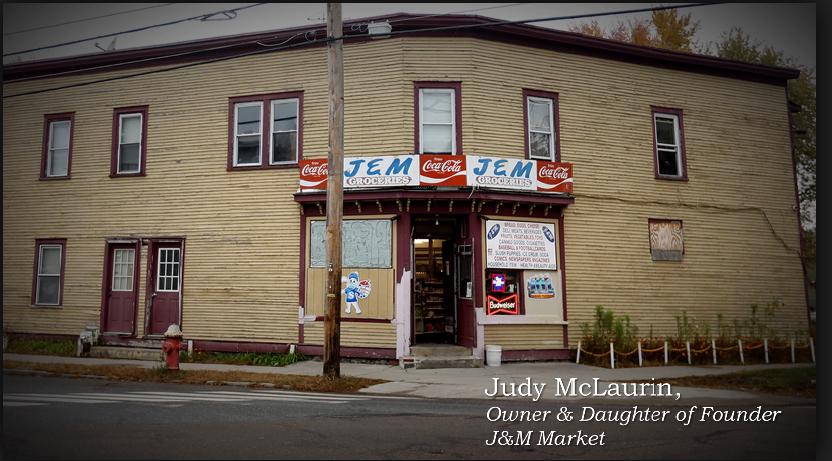 More than a Market
More than a Market
Rome's Groceries (1924-1975) and J&M Groceries (1975 to present)
68 Archibald Street in Burlington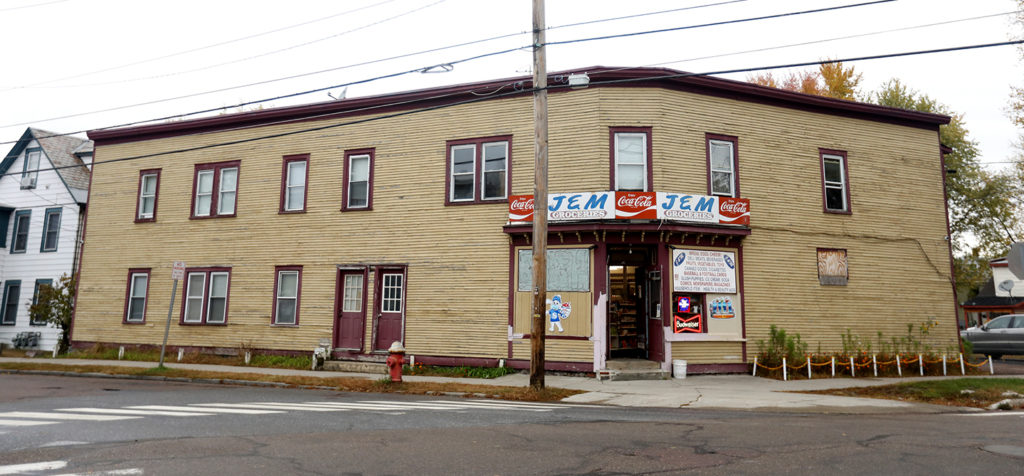
On a pie-shaped wedge of land at the intersection of Intervale Avenue and Archibald Street stands a building approaching its hundredth anniversary as a neighborhood market. Two incarnations of the market made the dream of independence and economic security a reality for two families. The Romes were among the hundreds of Lithuanian Jews who fled religious and economic discrimination to settle in Burlington from the 1880s to the 1930s. The families of John L. McLaurin II and Mildred Riley McLaurin left the South as part of the Great Migration of African Americans (1915-1970) to escape racial discrimination and lack of economic opportunity. John and Mildred met and married in New York City and moved to Burlington in the early 1960s. In 1975, they purchased Rome’s Groceries and renamed it J & M Groceries. Their daughter Judy, who returned to Burlington after thirty-six years, continues to serve the neighborhood.
Rome's Groceries 1924-1975
Barnet Rome immigrated to the United States from Kovno, Russia (today Kaunas, Lithuania) in 1905. He joined two brothers already settled in what became known as Little Jerusalem, a vibrant neighborhood in Burlington, where Jewish immigrants recreated the intimate life of the shtetl complete with kosher bakeries, meat markets and groceries, synagogues, dry goods stores, tailors, and other services.
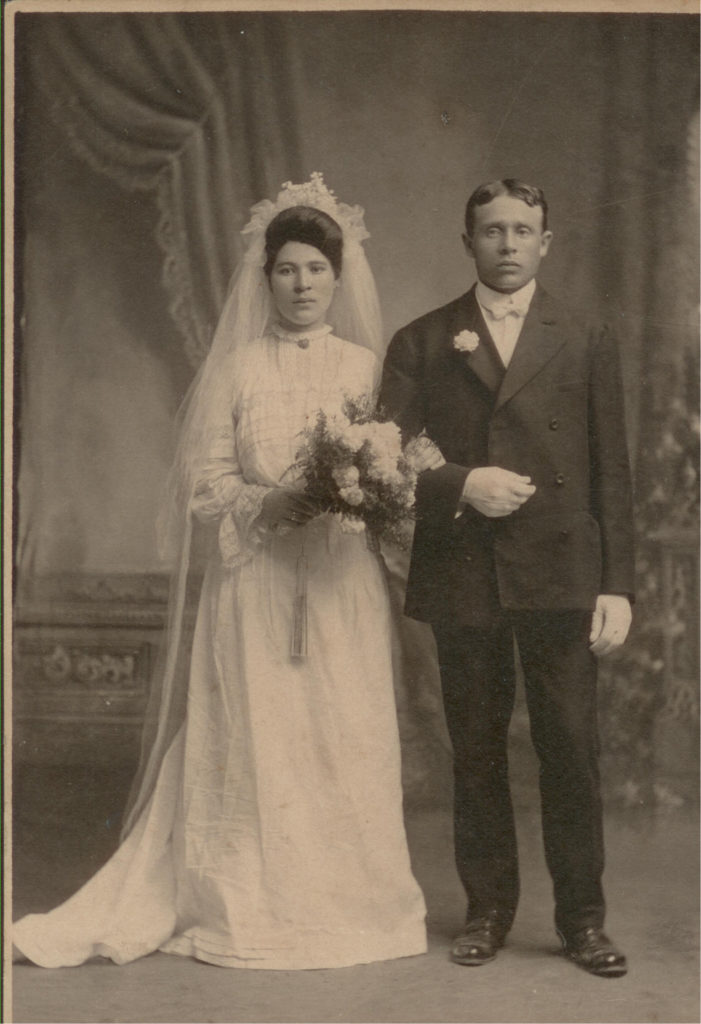
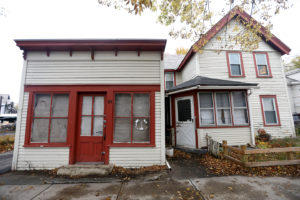
In 1906, Barnet married Lena Mollie Epstein, also from Russia, whom he was introduced to in Boston, where Lena worked as a domestic. Barnet worked at the American Woolen Company in Winooski until a serious workplace injury disabled him. In 1912, the couple opened a market in a tiny storefront at 133 Intervale Avenue attached to their house.
Ten years later Barnet constructed a spacious building at 68 Archibald Street where the family lived in a first-floor apartment behind the store and rented out other apartments on the second floor. It was a traditional neighborhood grocery selling staples but no fresh produce. In his later years, Barnet sat in an easy chair by the door to the rear apartment, rising to tally customer purchases. Next to the chair was a freezer filled with ice cream, which he would dispense to his delighted grandchildren on their visits. The family has never succeeded in replicating Barnet’s recipe for “killer pickles,” sold from a barrel in the store.
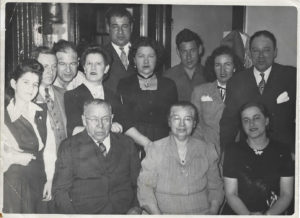
Barnet and Lena’s five children worked in the store. The four sons—Louis, Joseph, Sam, and Morris—also delivered newspapers, passing the route down from one to the next. Morris Rome delivered around the neighborhood and sold papers on the docks to arriving ferry passengers, earning about $20 a week.
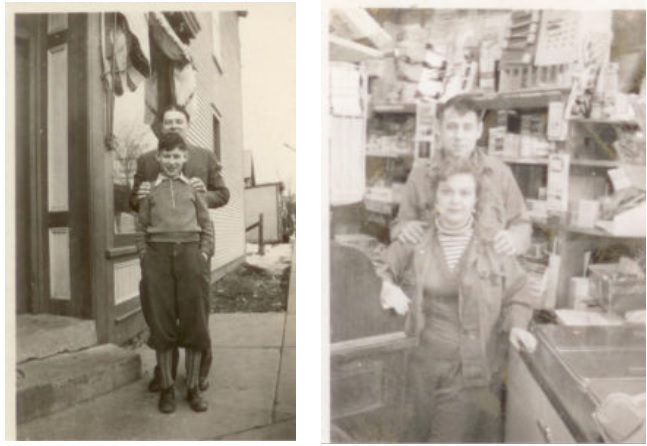
When Morris returned from service in World War II, he assumed management of the store in partnership with his wife, Shirley Harre Rome, and later purchased it from his father. Their two children, Judy and Lee, worked the cash register, marked prices, and stocked shelves. When the store was busy, Morris would ring a buzzer under the counter and the children would emerge from the rear apartment to help. For many years, the store was open from 8:00 a.m. to 10:00 p.m. seven days a week.
As an elementary school child I needed to stand on a box in order to operate the cash register and conduct transactions. It was our grandfather’s original cash register, so it was pretty antiquated, and the maximum dollar amount for a single transaction was something like four dollars. We would have to ring up that number multiple times for larger orders. The store was like a large pantry for us – if we wanted anything, even a late night snack while studying, we just walked into the store and took what we wanted! —Judy Rome Frumoff, daughter of Morris and Shirley Rome
Morris and Shirley committed acts of kindness large and small, whether loaning money to a customer who lost all his family’s Christmas gifts to a fire, rescuing a toddler wandering in the street outside the store, or providing a safe space for struggling teens.
There were three troubled teenage brothers in our neighborhood who were having problems in life and in school. My mother started talking to each one of them, and she really cared about those boys, so they became very fond of her, where they would stop in and see her after school. In later years, the oldest brother’s wife was able to locate my mother in Florida for her husband. He called her several years before she died, they spoke for a long time and he told her what she meant to them. He called her again before she passed away and those calls thrilled her and meant the world to her. All three brothers went on to have good, productive lives. —Judy Rome Frumoff, daughter of Morris and Shirley Rome
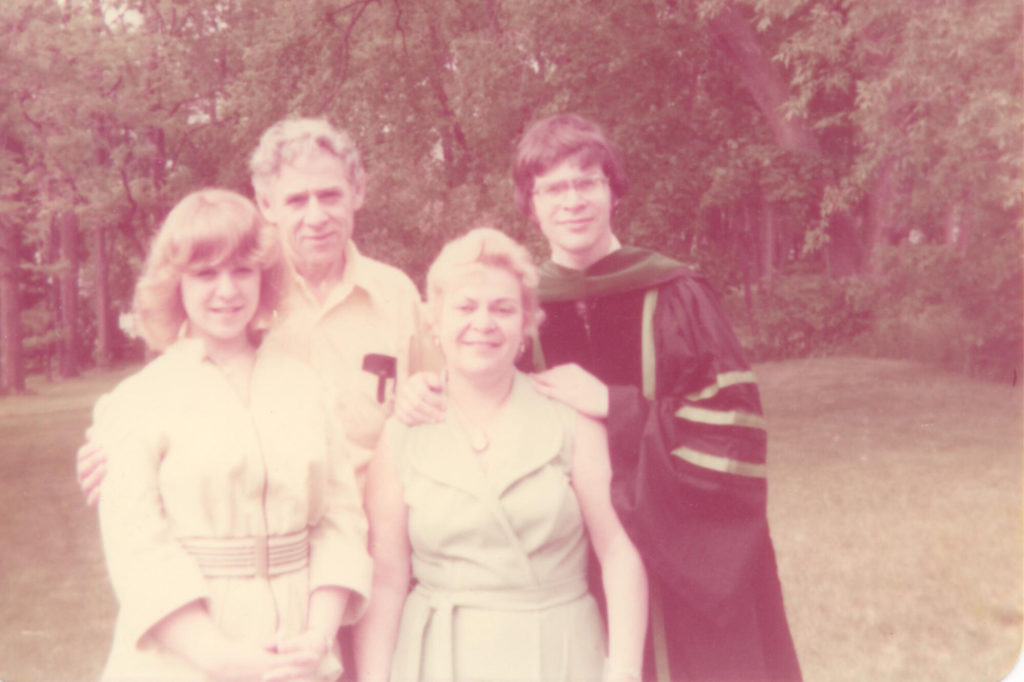
Family photos courtesy of Judith Rome Frumoff.
J&M Groceries 1975 to present
My father wanted to be his own boss…he wanted to show us that we can be independent and work on our own. —Judy McLaurin, current owner and daughter of founders Mildred and John McLaurin
Working for himself was always in the back of John McLaurin’s mind. In 1965, he moved his young family from Queens to Burlington to take a job as the mail order foreman at Maternities, Inc., a division of a New York City-based clothing store. He purchased Rome’s Groceries from Morris and Shirley Rome in 1975. Morris worked alongside John for several weeks, showing him the ropes. In the early years, his wife, Mildred, managed the store while John held part-time jobs to make ends meet.
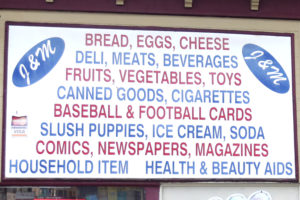 J & M was open seven days a week and holidays, one of the few markets open 365 days a year. The sign that still tops the doorway harkens back to another era, when kids stopped by for slush puppies and ice cream sodas or to buy a pack of baseball cards. Today customers stop by for beverages, snack items, cigarettes, and conversation.
J & M was open seven days a week and holidays, one of the few markets open 365 days a year. The sign that still tops the doorway harkens back to another era, when kids stopped by for slush puppies and ice cream sodas or to buy a pack of baseball cards. Today customers stop by for beverages, snack items, cigarettes, and conversation.
Life was difficult in a community with few African Americans. The boarded-up store windows are a reminder of the overt racism the family endured.
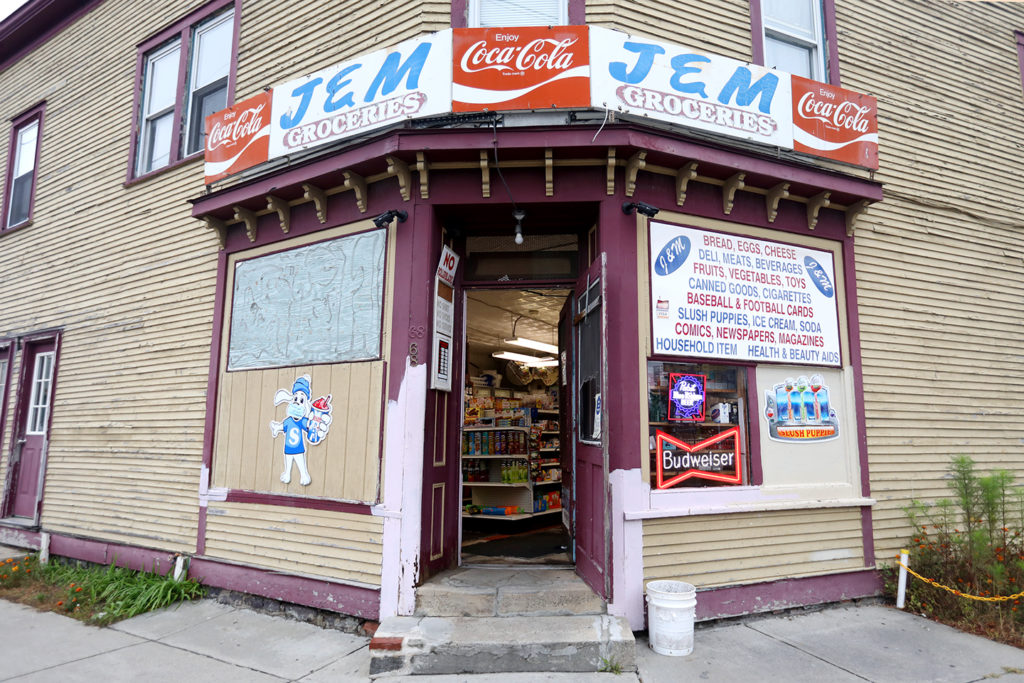
Mildred and John tried to protect their four children—John, Michael, Judy, and Carolyn—from racism by focusing life on the family and the store. The children attended Mater Christi School and participated in extracurricular activities but were not permitted to hang out in the neighborhood or walk alone. They did their homework in the room behind the store until their parents were ready to go home for the day.
More than the other children, Judy McLaurin’s life revolved around the store. Even as a young child, she helped out, and by high school, she managed it. The work exposed her to prejudice that her mother used as a lesson in personal power and resilience.
Both John and Mildred fought for racial and social justice in the broader community. Mildred McLaurin, who was active in the Burlington chapter of the NAACP, included her children in meetings and events as a way to build their self-confidence and pride. Mildred helped organize dances, speakers, and fashion shows in which Judy and her sister, Carolyn, modeled.
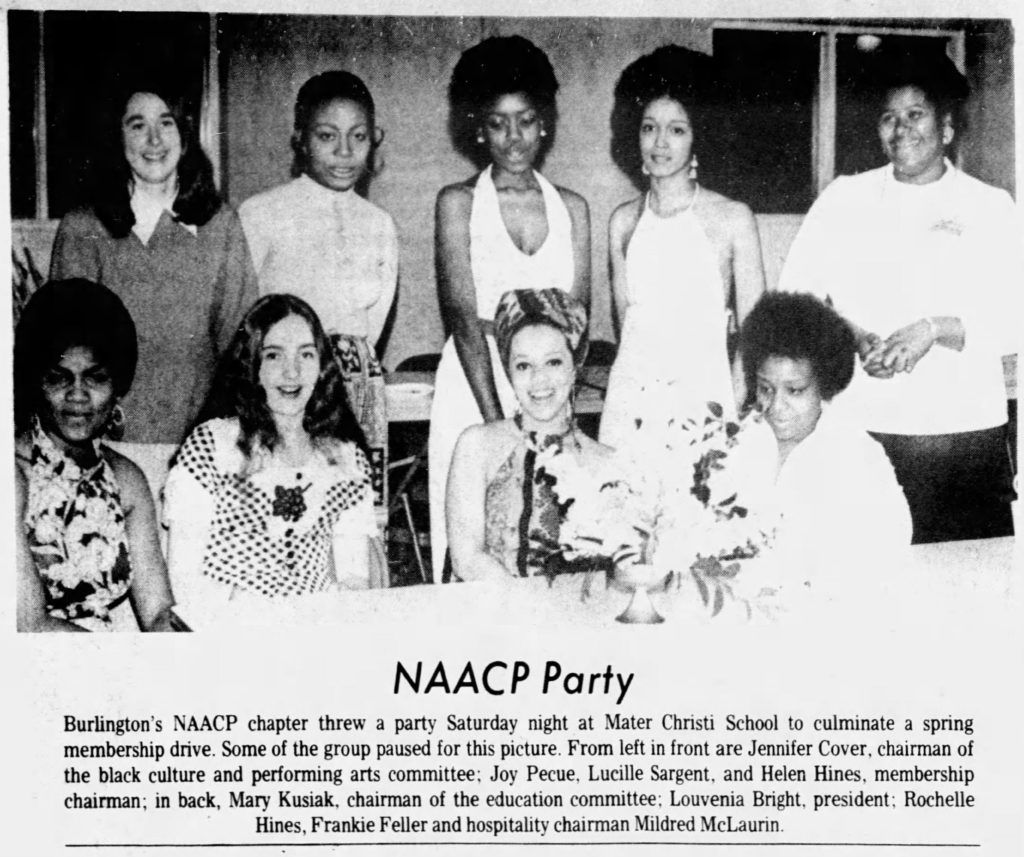
Over the years, John’s investment in rental properties in Burlington strengthened the family’s financial security and opened his eyes to the issue of homelessness in the city. He provided rooms or apartments for little or no rent to people facing homelessness. He worked on a local level to increase affordable housing in the Old North End. In 2005, he received the Neighborhood Improvement Award for his work to provide “stability and hope” for people. He fought for this issue throughout his lifetime as a businessman and entrepreneur.
It was just the way he was. He always told us to be kind to the less fortunate, because there was a thin line, a very thin line between them and us. At any given time we can be in that position and what you put out, you will get back. That’s what he told us. —Judy McLaurin, current owner and daughter of founders Mildred and John McLaurin
Issues like racism and homelessness have not disappeared, but Judy feels the neighborhood has changed for the better. Burlington’s Community and Economic Development Office provides technical and financial support. It works with small business owners to revitalize the North Street commercial corridor and with homeowners, landlords, and tenants to upgrade and expand housing. At a grassroots level, residents work to strengthen community engagement and pride. It translates into a more supportive community of customers and staff at J & M.
